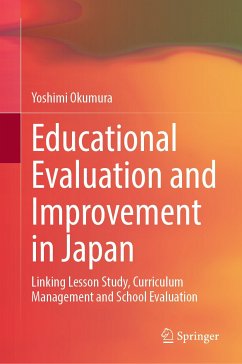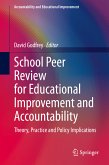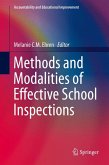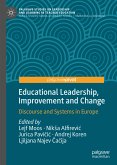Through in-depth case studies of two primary schools, readers gain a comprehensive understanding of educational evaluation and improvement. The book proposes a new theoretical framework for a comprehensive quality care process that links lesson study, curriculum management, and school evaluation.
Based on authentic assessment, the strategies and examples presented can be applied to any quality system. The conclusion offers core ideas for successful implementation of educational evaluation and improvement.
This book is essential reading for teachers and school leaders seeking tobuild their schools' quality systems, and for researchers and graduate students interested in improving educational evaluation.
Dieser Download kann aus rechtlichen Gründen nur mit Rechnungsadresse in A, B, BG, CY, CZ, D, DK, EW, E, FIN, F, GR, HR, H, IRL, I, LT, L, LR, M, NL, PL, P, R, S, SLO, SK ausgeliefert werden.









